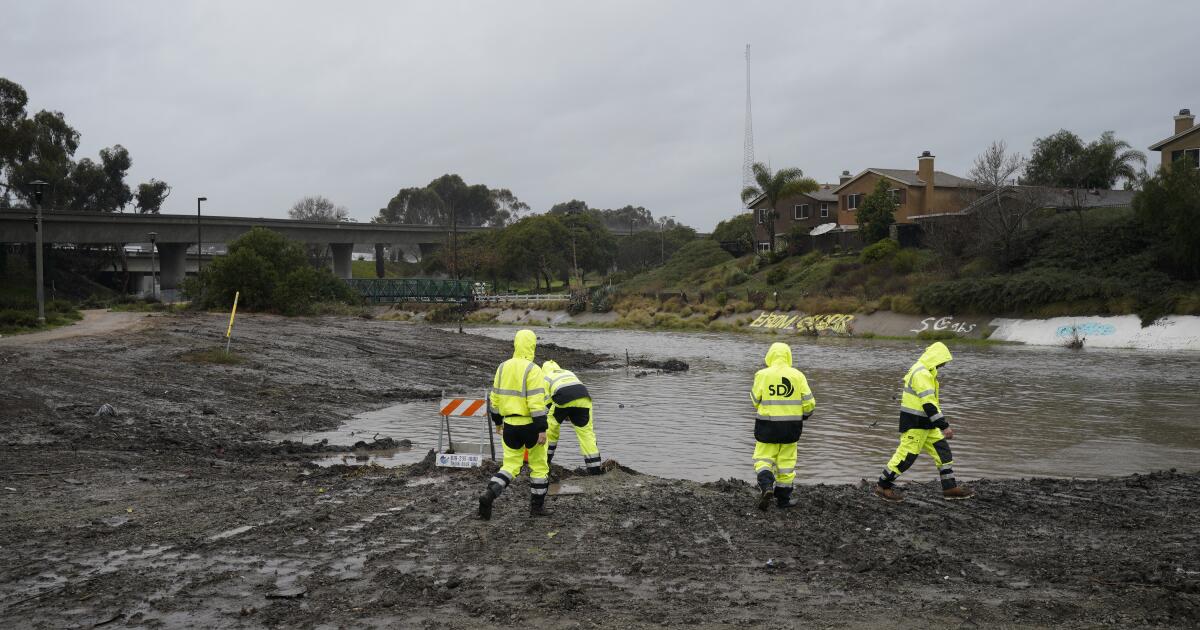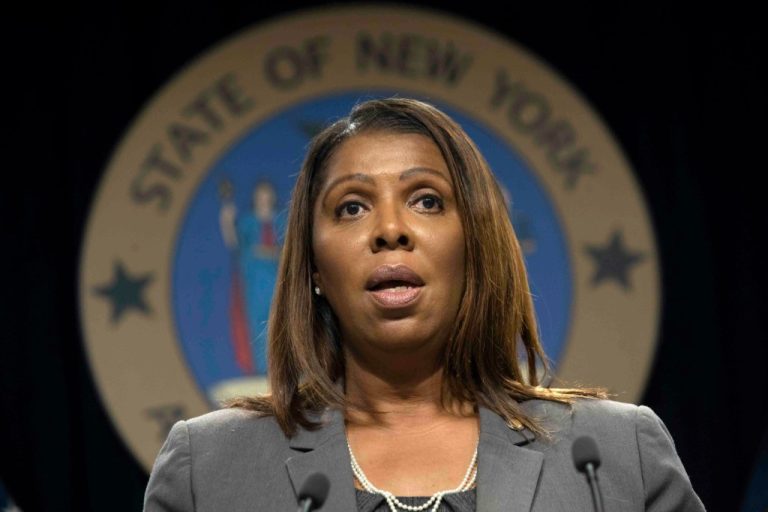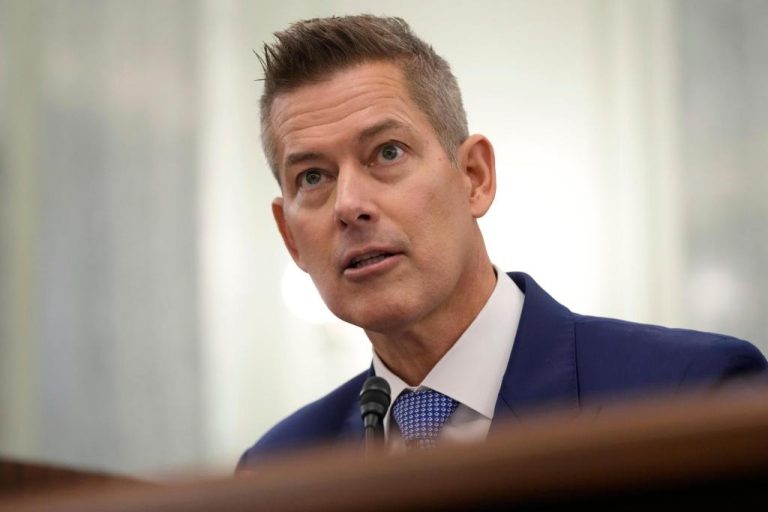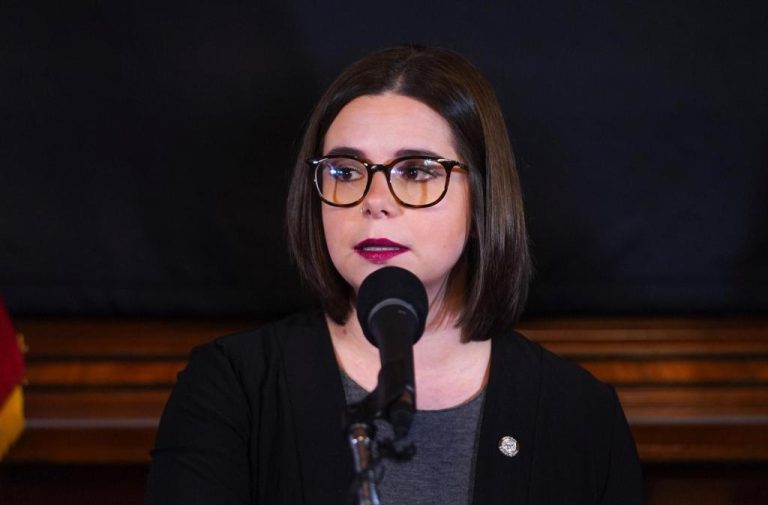

San Diego city officials are busy tabulating and verifying how much they’ve spent coping with the Jan. 22 storm and subsequent flooding so they can potentially be eligible for many millions in relief from the federal government.
President Joe Biden’s Feb. 19 declaration that the storm was a major disaster unlocked millions in federal funds for individuals who lost homes and property — but that declaration doesn’t apply to government agencies.
Officials from the Federal Emergency Management Agency are scheduled to brief the City Council on how government agencies can secure such declarations during a public hearing on either March 11 or March 12.
While city officials expressed confidence they would eventually get reimbursed, they warned council members this week that the process is complex and time-consuming.
“It takes years — it’s not a fast process,” said Adrian Granda, the city’s director of government affairs.
The storm’s torrential rains and floods killed three people and damaged or destroyed roughly 1,000 homes across San Diego County, many of them within the city along Chollas Creek.
Mayor Todd Gloria estimated earlier this month that the city itself had suffered $51.1 million in damage to its infrastructure during the storm.
“That’s a number that will grow as more impacts are realized,” the mayor said.
The city has also spent aggressively on recovery efforts that have required overtime for city crews, agreements with emergency contractors for supplies and acquiring new resources like sandbags.
City officials have set aside $10 million for such expenses and said this week that $6.1 million of that money has already been accounted for.
Additional spending that could end up being eligible for reimbursement may include millions the city is expected to owe in wetlands mitigation to make up for emergency flood channel clearing city officials did shortly after the storm.
When city officials clear environmentally sensitive flood channels that include wetlands, they must pay to cover the creation of replacement wetlands elsewhere in the region.
While it’s unknown how much the city may owe for the aggressive clearing it did after the storm to prevent additional flooding, city officials said they spend $3 million on wetlands mitigations in a typical year when there are no emergency clearing efforts.
“We are still working with relevant agencies to assess and verify those costs,” Granda said. “We are still going through the assessment and verification process with the county Office of Emergency Services.”
Walt Bishop, who oversees federal lobbying for the city, said San Diego could face reimbursement delays even if the city gets all the approvals necessary.
That’s because the FEMA remibursement fund often runs out of money and must be refilled by the U.S. Congress, where partisan acrimony makes even the simplest funding allocations difficult, Bishop said.
Bishop said some reimbursements from Hurricane Sandy in 2012 did not come through until 2020 — information Councilmember Vivan Moreno called “sobering.”
Councilmember Joe LaCava said he hopes FEMA will give the city enough money to build better flood prevention infrastructure, not just enough to replace the inadequate infrastructure the city had before the storm.






